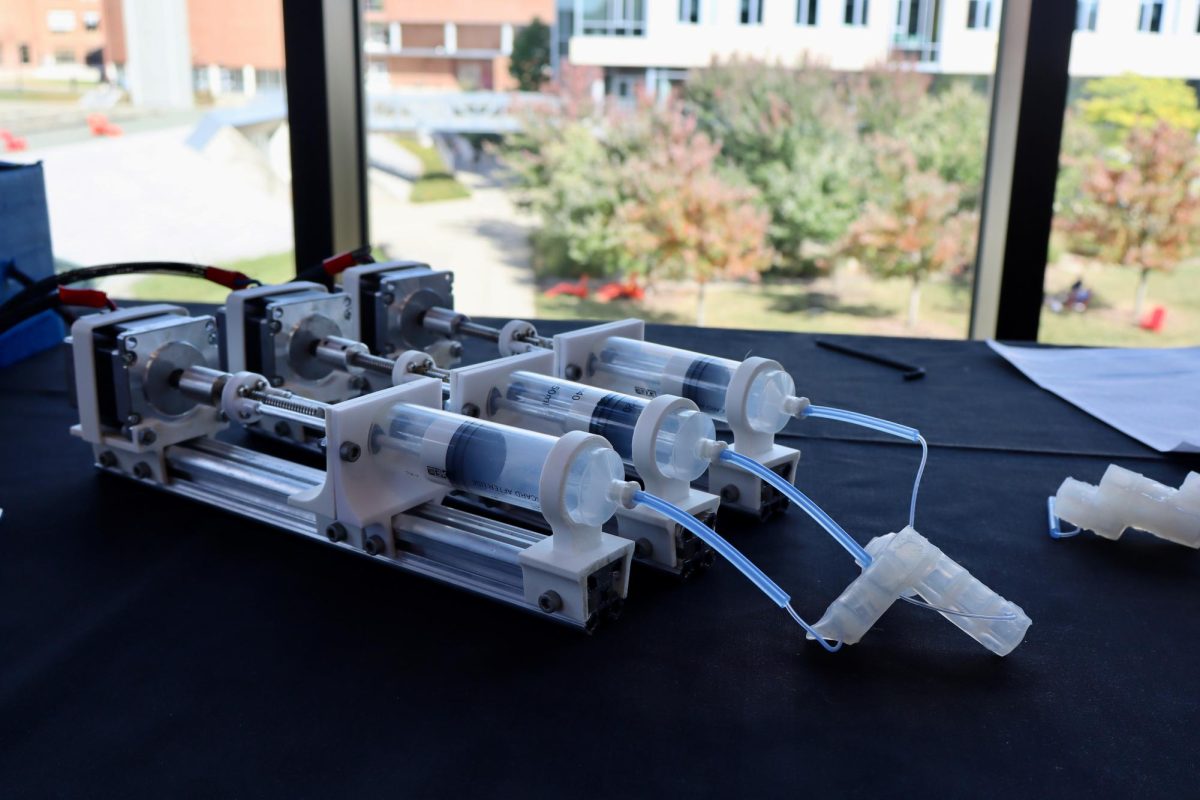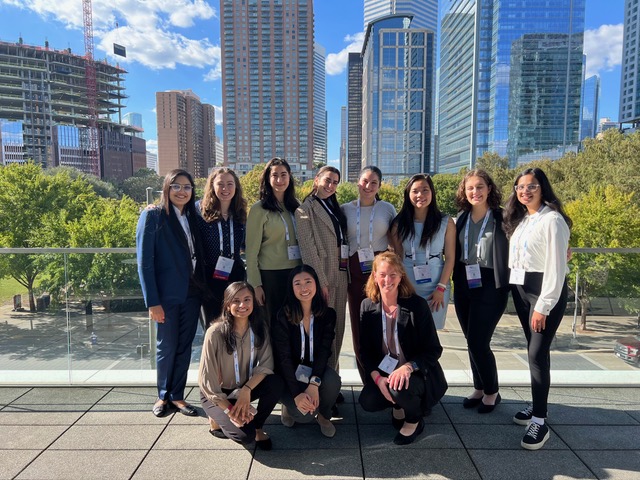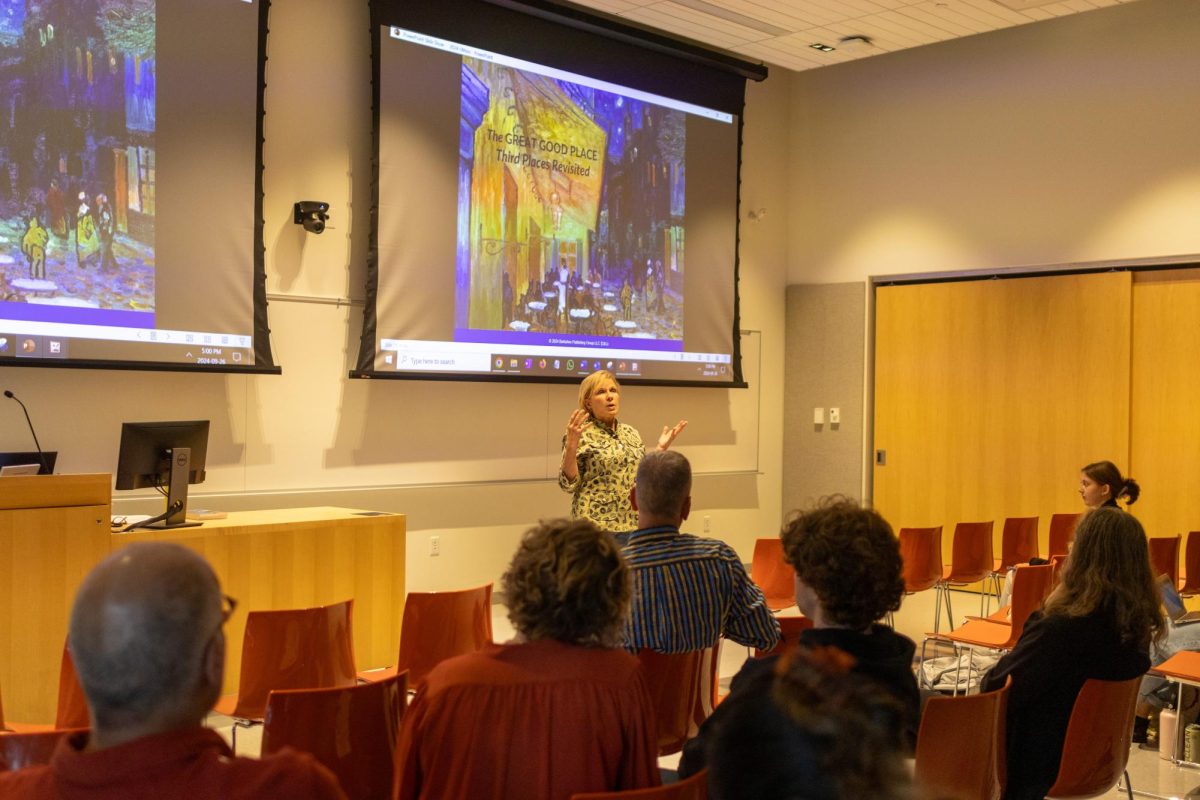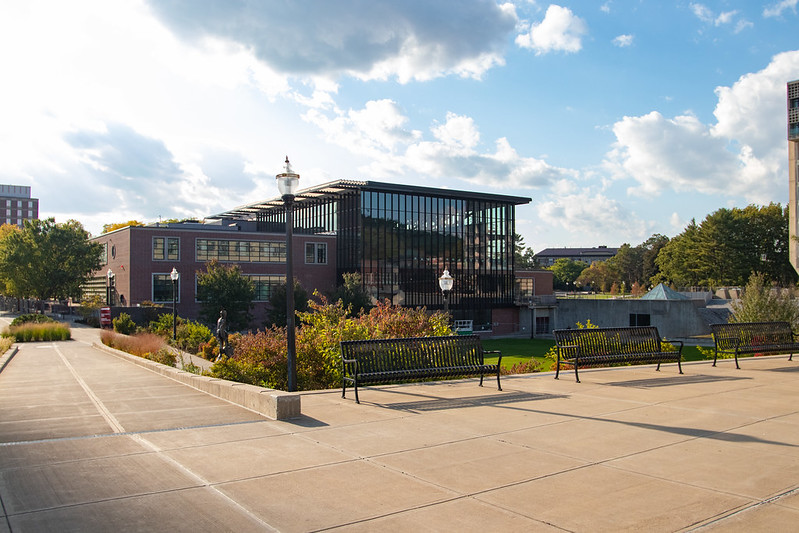
On Monday evening, biology professor Thomas Zoeller took the stage at the Massachusetts room at the Mullins Center, and in an hour-long lecture, talked about how exposure to certain industrial chemicals is harmful for early childhood development.
At the end of the evening, Zoeller was awarded the Chancellor’s Medal on behalf of University of Massachusetts Chancellor Kumble Subbaswamy, adding to an already illustrious career which also includes the Samuel F. Conti Research Fellowship in 2004
Speaking in a thorough, yet good humored manner, Zoeller started off by walking everybody through his findings.
Originally, Zoeller studied how the brain controls the endocrine system, but then decided to particularly pursue research on the thyroid hormone and how its production is affected by foreign chemicals.
He cited two reasons for this switch: the first being that he became a parent and wanted to further the extent of study on the chemical influence on early childhood, a neglected area in science at the time.
The second reason was his experiences when he was on the Endocrine Disruptor Screening and Testing Advisory Committee (EDSTAC). The committee was formed by the Environmental Protection Agency of the United States to provide the necessary information about controlling the endocrine effects of chemicals.
The specific family of harmful chemicals that Zoeller emphasized is polychlorinated biphenyl (PCB), which used to be a commonality in the United States. Regulation of PCB was banned by legislation in 1979, but according to Zoeller, everybody in America currently has PCB in their system, while babies being born today receive it genetically.
According to Zoeller, in the late 80s and early 90s, the placenta was only considered a medium of transport of desired substances. People did not know that toxins, and even alcohol could just as easily go to the baby from the mother.
Exposure to PCB before birth has been linked with lower IQ and impulsivity, and Zoeller’s research has revealed that the chemicals can also disrupt the endocrine system, specifically the regulation of the thyroid hormone. The thyroid hormone is so essential for brain development that deficiency of it can cause mental retardation. Even small fluctuations in thyroid hormone levels impact cognitive function.
There is no escaping how widespread chemicals are, with 73 billion pounds of them produced and imported daily into the U.S alone, according to Zoeller. He also mentioned how very few of these are actually tested for safety.
He used the example of hamburger wrappers in fast food joints, which are sprayed with the same substance Teflon is made of, so that the grease from the burger won’t get on customers.
However, the solution to this pressing issue is not clear-cut. Zoeller finished with talking about how humans live in a “chemical soup,” meaning even though chemicals deemed harmful are excluded, other toxins can cause harmful effects as well.
Alan Schneyer, a research professor from the biology department, has known Zoeller for five years, and commended the lecturer’s past work.
“Every time he’s taken a different approach, it’s always been at the cutting edge,” Schneyer said. “He’s not just discovering something, but always pushing the envelope with the next experiment.”
Schneyer believes that information about chemical exposure needs to spread in order for action to be taken.
“I think the government has a role in providing the information,” he said. “They can at least give guidelines about what is a safe level and what isn’t a safe level, at least as far as they know.”
Schneyer also foresees further research advancements into the field of endocrinology.
“The problem is that just because something has one of these chemicals in it, it doesn’t mean that it will necessarily get into you,” he said. “Even if you take away some of these exposures, the level that is in your blood doesn’t go down, so you have to be getting it from somewhere else. We still don’t know all of the places that these toxins are getting into us.”
Junior Toni Ambrogio cited her major, nutrition, that piqued her interest in the lecture. She plans on utilizing some of the points raised in her own personal life.
“I’ve also done some research on PCBs, but I’ve never heard it talked about in this manner,” she said. “I’ll definitely implement some of his ideas about not using plastic in the microwave or dishwasher, even though those things say ‘dishwasher-safe.’”
Emily Reilly, a freshman double major in biology and psychology, attended the lecture because her developmental psychology class has gone over “how different environmental factors can affect prenatal development.” She thought that Zoeller did well in talking to the audience as a whole.
“He explained it well,” Reilly said. “There were a few things that he mentioned that if I wasn’t a biology major I might not know about, but they weren’t important to what he was specifically talking about. I think it was just an add-on for the science people in the room.”
Senior Caitlin Rotkiewicz, who is a senior communication disorders major, came to the lecture because she is interested in learning more about her own health.
“In terms of the endocrine system, the thyroid particularly is skimmed over a lot,” she said. “I think he did a great job explaining the structures of molecules and then make that applicable to our bodies and our daily life.”
Rotkiewicz takes precautions in her daily life to minimize the effects of the “chemical soup.”
“I don’t use a water bottle that has BPA,” she said. “I keep my plastic, fragrance and shampoo usage down to a minimum. And I use healthy toothpaste, so I’m conscious about what I put into my body.”
Ayush Kumar can be reached at [email protected].


















